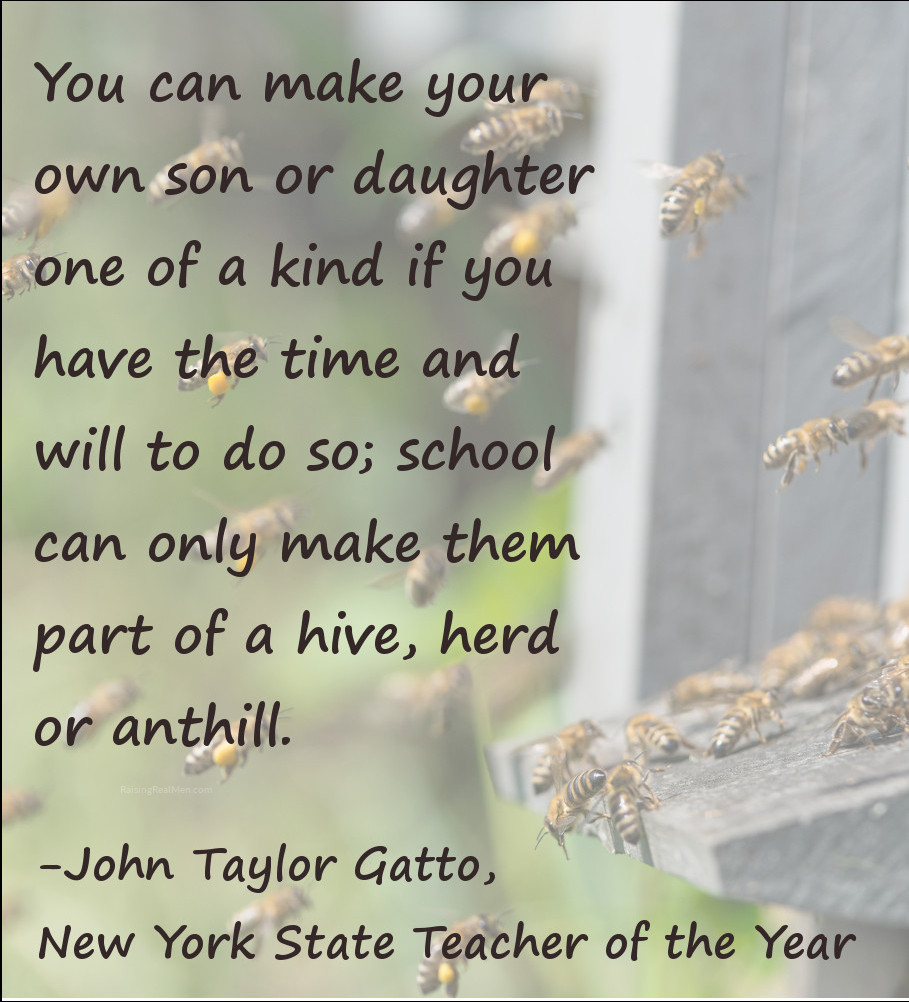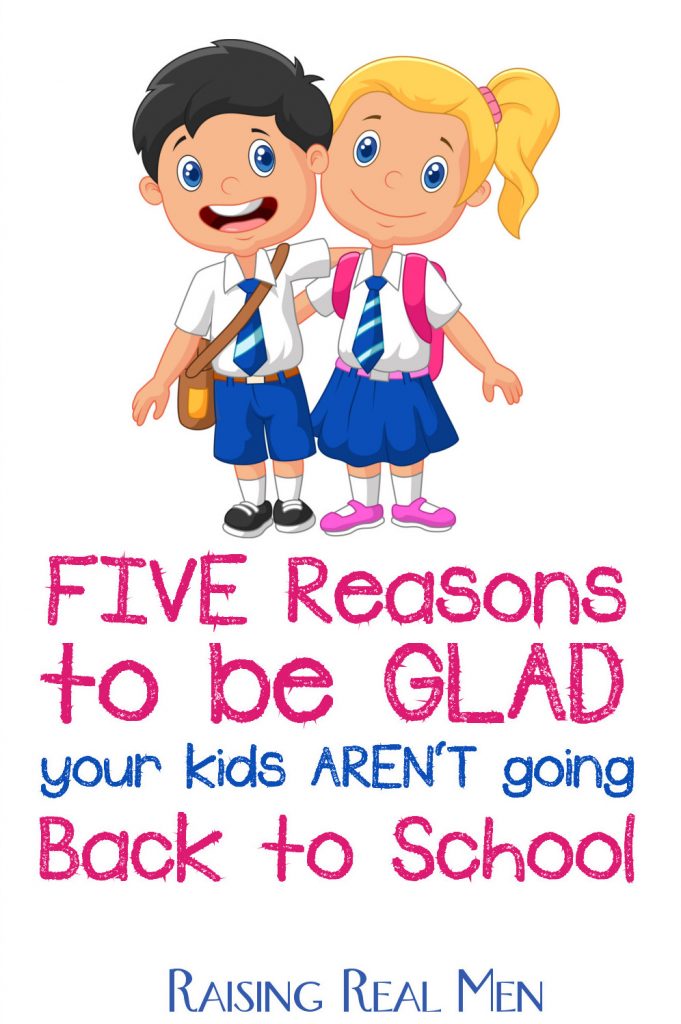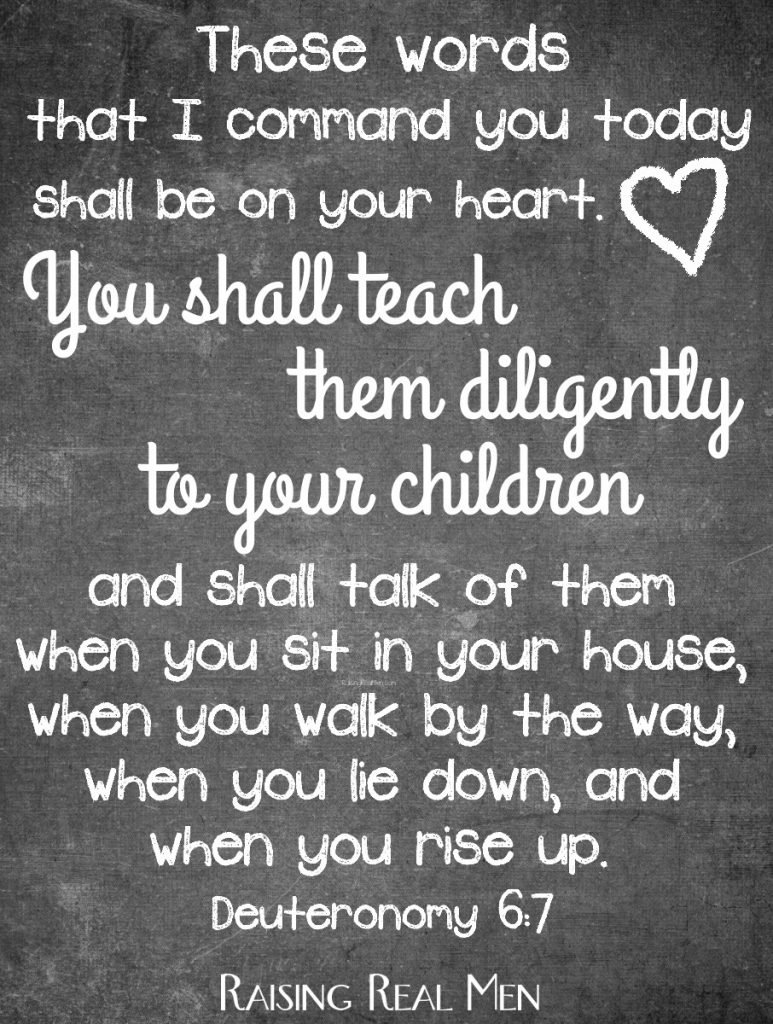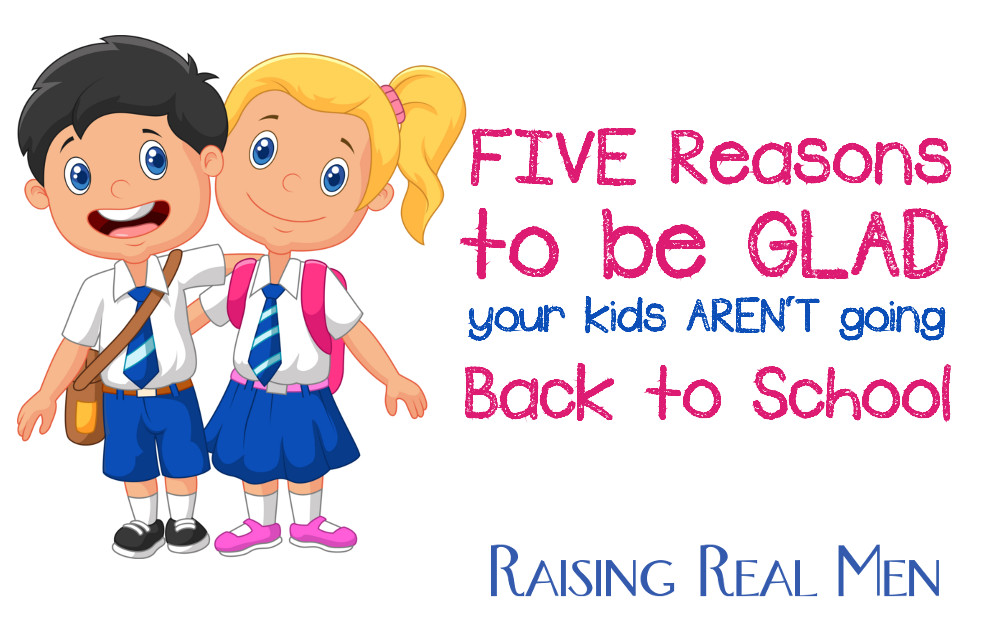Five Reasons to be Glad That You Didn’t Drop off the Kids at School
It’s that time of year when your social media feed fills up with pictures of cute children wearing shiny new backpacks and carrying shiny new lunch boxes and looking oh so happy. First-day-of-school pictures can make you question your plans to homeschool, particularly if you’re new to it or you had a hard year last year. This year even my friends are struggling since several prominent, long-time homeschoolers have enrolled their kids in a bricks-and-mortar school. It can make you wonder, “Am I really doing the right thing? Would my kids be better off in school? Will they be sorry one day that I homeschooled them?”
We’ve homeschooled our eight from the beginning. Four of ours have graduated so far (and are doing well!), but every once in a while, I still have pangs. I find myself wondering if it’s still the best thing for our kids. Our twenty-four years of experience, though, bring to mind all the reasons why we should be glad we didn’t drop the kids off at school…
Some reasons are obvious, silly, and fun: You can wear your pajamas all day. No one has to ever ride a school bus. You can have leftovers for lunch. You can have school in a tree. Or at the lake. Parent-teacher conferences happen in the bathroom. The principal is in love with the teacher and that’s okay. We all love to laugh about those things, but there are five big reasons we ought to keep in mind whenever we wonder if we really ought to be homeschooling.
In homeschooling, no child is left behind or bored out of their mind. In second grade, I was in an experimental school that let kids go as far through the curriculum as they could. I finished the sixth grade material before Christmas, then our family moved to a rural school district that did no such thing. I spent the next four years trying not to lose my mind. We’ve had precocious kids and struggling learners. All of them got exactly what they needed from year to year.

School conforms to your family instead of your family to school. I remember desperately trying to finish big assignments on days my family had big events or wanting (sometimes needing) to travel while we were in school. When you homeschool, you can plan light days or even take days off when your family has doctor appointments, travel, or other interruptions. You have the flexibility to schedule school time so that neither schoolwork or your family have to suffer.
Quality time is no substitute for quantity time. It’s all well and good to plan to spend time talking to your child, but what if they don’t feel like talking in the twenty minutes you’ve scheduled? They will have questions and doubts and teachable moments and emotional crisis. When you homeschool, those opportunities come up when you’re there to field their questions. You are there when hard topics come up.

Discipleship happens. Jesus said, “A disciple is not above his teacher, but everyone when he is fully trained will be like his teacher.” (Luke 6:40, ESV) Your children will follow the pattern of the people who spend the most time in teaching and training them. Would it be better for their thinking to be formed by a changing series of strangers assigned by the district, or by yourself – so you can lead them towards Christ? Homeschooling allows you to talk to your children about the things of the Lord all day long, in the regular course of life. They get to see you interact with business people, angry neighbors, government officials, your church family. They watch how you handle frustration, jubilation, disappointment, surprise. They get to be with an adult Christian 24/7.

When your children leave home, relationship is all you’ll have. Homeschooling is hard–no doubt about it. Your kids are with you all day. There aren’t many breaks and they can really get on your nerves. Listen, though. That’s good. It forces you to work through issues. Sibling rivalry has to be dealt with. Attitudes have to be addressed. It means you have to discipline and disciple or go crazy. It means you are moved to maintain good relationships just to survive. And when all is said and done, relationship is all that matters when your kids are grown – their relationship with God and their relationship with their siblings and with you. Homeschooling makes those more likely to be what they need to be.
Don’t be discouraged, mamas, when you see folks posting those adorable back to school pictures. It doesn’t matter how happy they look on day one, what matters is what things are like when it’s all over!
Related Resources
We’ve found the age that really makes parents question their homeschooling, their parenting, and even their sanity is in the tween or preteen years. The first couple of years of puberty, sometime between 8 and 14, are just plain tough because their hormones and brains are changing. Get practical help from our newest book, No Longer Little: Parenting Tweens with Grace and Hope.
Your friend,
Melanie

